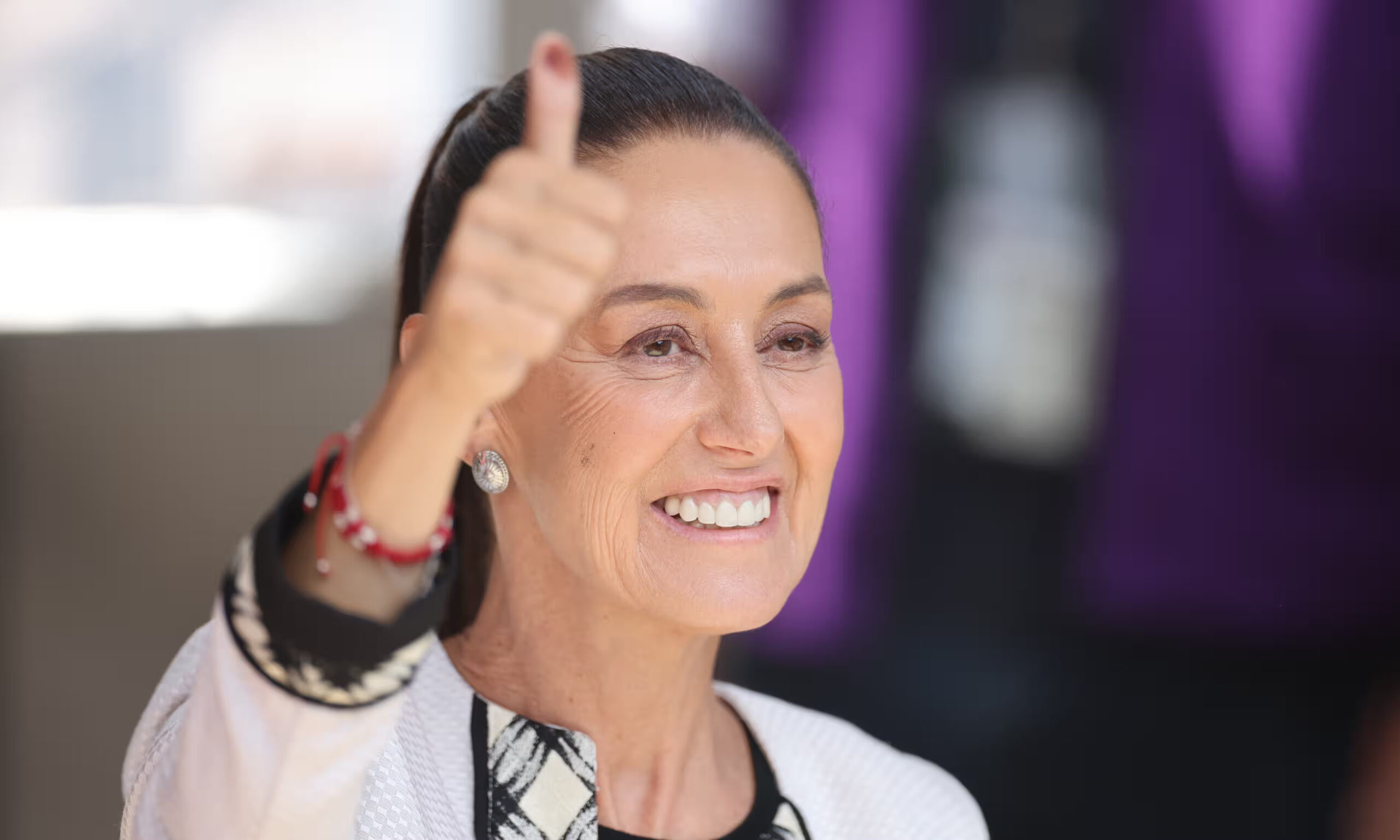 Claudia Sheinbaum, a former climate scientist, is set to become México’s first female president according to exit polls. Photograph: Héctor Vivas/Getty Images –
Claudia Sheinbaum, a former climate scientist, is set to become México’s first female president according to exit polls. Photograph: Héctor Vivas/Getty Images –
First published on 2024 Jun 02, updated on 2024 Jun 03
–
Former México City mayor and candidate for Morena party is projected to receive up to 63% of the 2024 vote against closest rival Xóchitl Gálvez
A former climate scientist is set to become the first female president of México, Latin America’s second-largest economy, in a landslide victory, according to exit polls.
Claudia Sheinbaum, the 61-year-old former México City mayor and candidate for Morena party, is projected to receive between 55% and 63% of the votes.
Mario Delgado, the head of Morena, told supporters in México City that Sheinbaum had won by a “very large” margin, hours before the quick count by México’s electoral commission was expected to produce a winner.
A big win for Sheinbaum would be consistent with polls through the campaign, which gave her a sizeable lead.
Aside from the presidency, more than 20,000 posts are up for grabs in México’s biggest election ever. The poll has also been the most violent in modern history, with more than 30 candidates murdered and hundreds more dropping out as criminal groups vie to install friendly leaders.
On Sunday, two people were killed at polling stations in the state of Puebla.
Sheinbaum capitalised on the support for her populist predecessor, Andrés Manuel López Obrador, who founded Morena in 2014 and first broke the traditional parties’ grip on power to become president with his landslide win in 2018.
She vowed to continue his policies, including cash transfers to elderly people and single mothers, and flagship infrastructure projects in historically poor regions but also a massively expanded role for the military in areas typically reserved for civil society, such as domestic security.
Sheinbaum’s closest rival, Xóchitl Gálvez from the opposition coalition, also prematurely claimed victory – despite being 20 to 30 percentage points behind Sheinbaum in exit polls.
Long lines of people waiting to vote stretched outside polling places in Guadalajara, Jalisco state, México on 2 June. Mexicans voted Sunday in a presidential election dominated by two women. Photograph: Ulises Ruiz/AFP/Getty Images
–
Roughly 100 million people were registered to vote on Sunday and huge lines formed at polling stations in the sweltering heat.
At a station in México City between the wealthy neighborhood of Roma and working-class Doctores, voters were split on the virtues of Morena, leaning out of the line to answer discreetly.
Patricia Castro, a woman from the state of Sinaloa, shrugged at the mention of Sheinbaum and Gálvez, but not of López Obrador. “He’s the worst,” said Castro. “The worst.”
Castro was voting for the conservative PAN party, which is part of the opposition coalition, saying: “The PAN did more [when it was in power].”
Further back in the line, Caro Guzmán, a middle-aged cleaner, emphasized the importance of Morena’s social programs. “With Morena my sister got money every month to look after our mother,” said Guzmán. “It really helped us when she was sick.”
Guzmán added that she trusted Sheinbaum to keep Morena’s social programs.
Sam Castillo, a 25-year-old dancer who lives between Oaxaca state and México City, said he hoped Sheinbaum could be stronger on foreign relations than López Obrador had been.
As he waited to vote at a polling place in the Florida district in the south of México City, he said he felt better with the leftist Morena in power as part of the LGBTQ+ community. “What we have seen with gender legislation, with marriage equality, for me it has to do with party,” Castillo said.
The new president will face tense negotiations with the United States over the huge flows of US-bound migrants crossing México and security cooperation over drug trafficking at a time when the US fentanyl epidemic rages.
Mexican officials expect these negotiations to be more difficult if the US presidency is won by Donald Trump in November. Trump, the first US president to be convicted of a crime, has vowed to impose 100% tariffs on Chinese cars made in México and said he would mobilize special forces to fight the cartels.
–
–
Explore more on these topics
Most viewed
- –
- –
- –
- –
- –
Most viewed Across The Guardian
(For the source of this, and many other equally intriguing and important articles, please visit: https://www.theguardian.com/world/article/2024/jun/02/mexico-elections-first-female-president-violence/)















